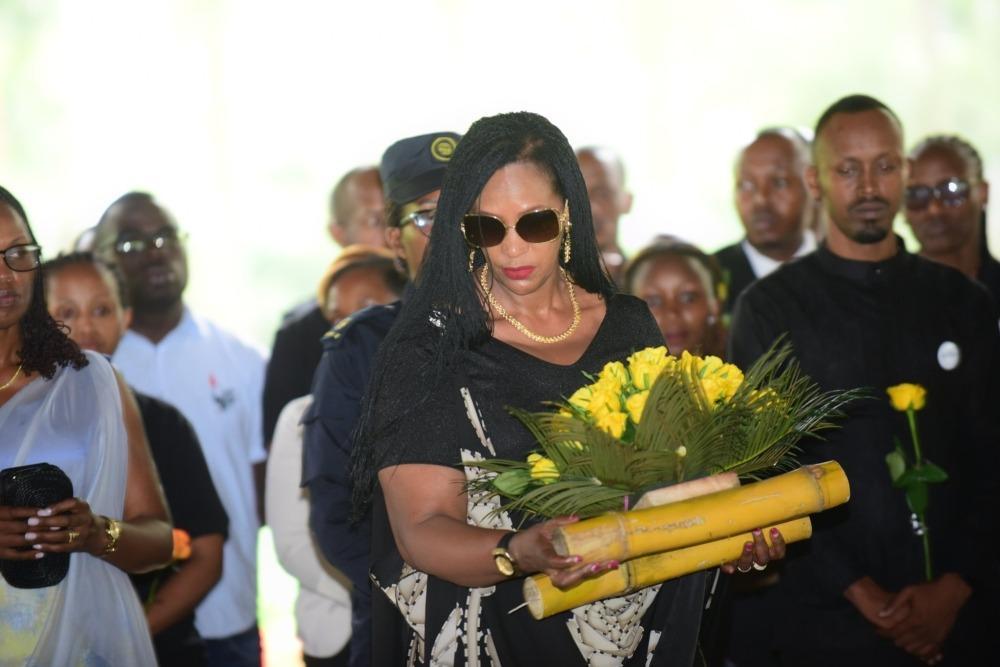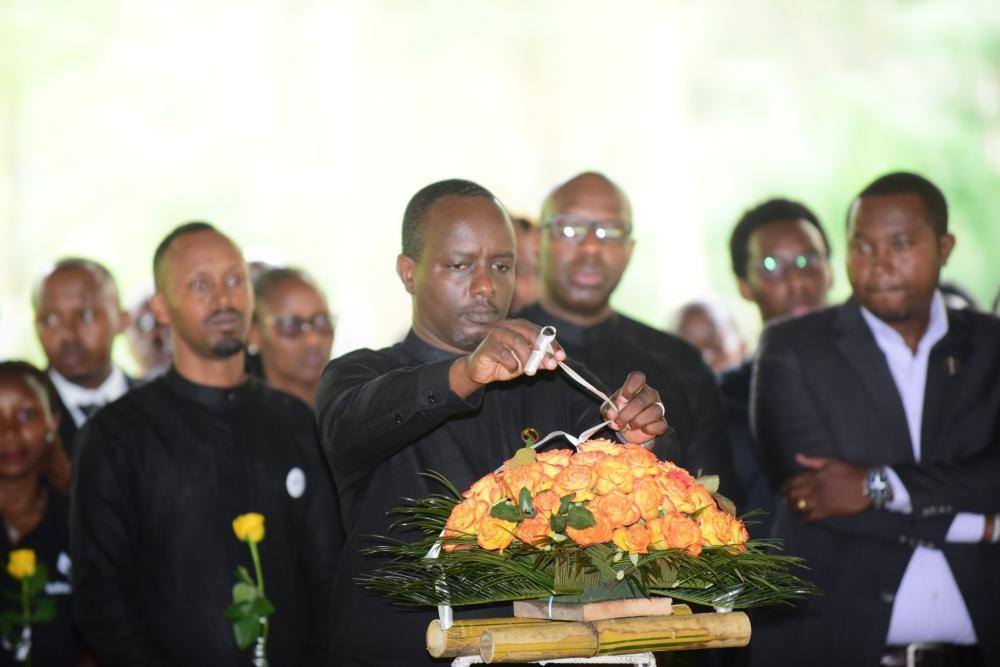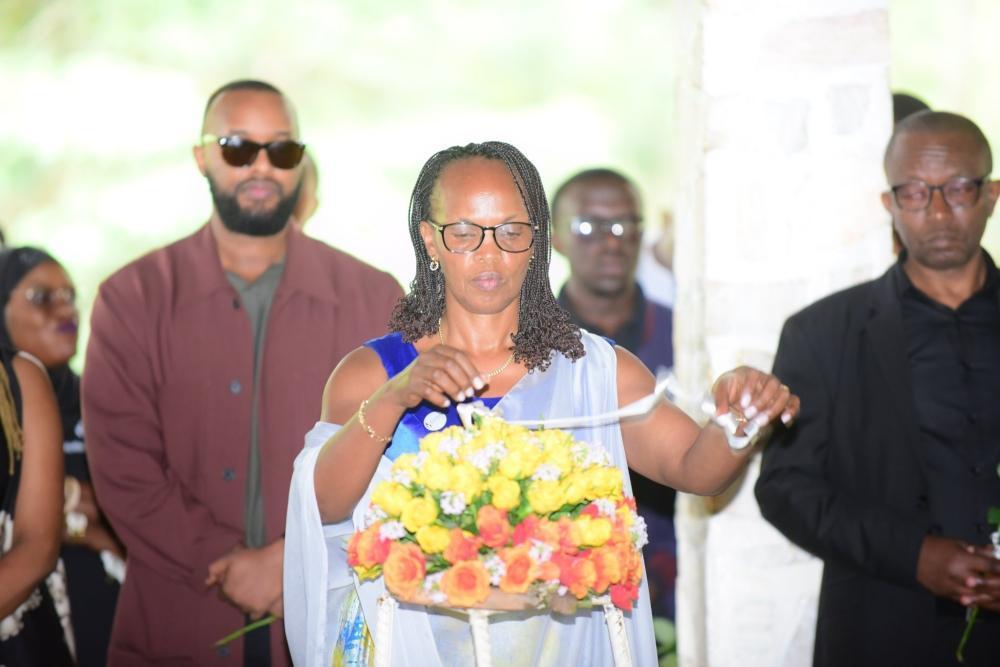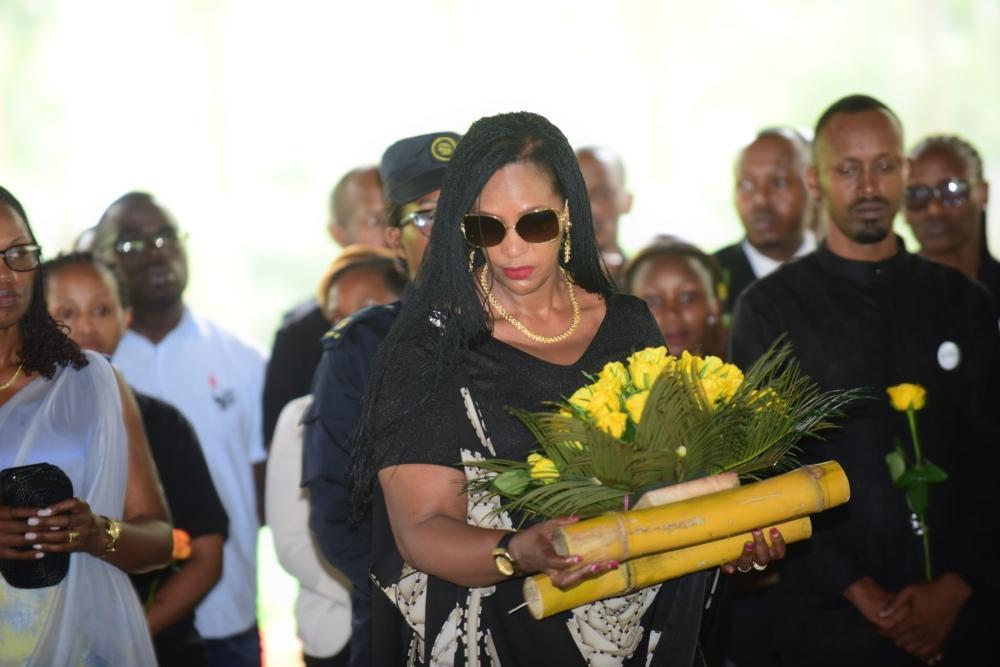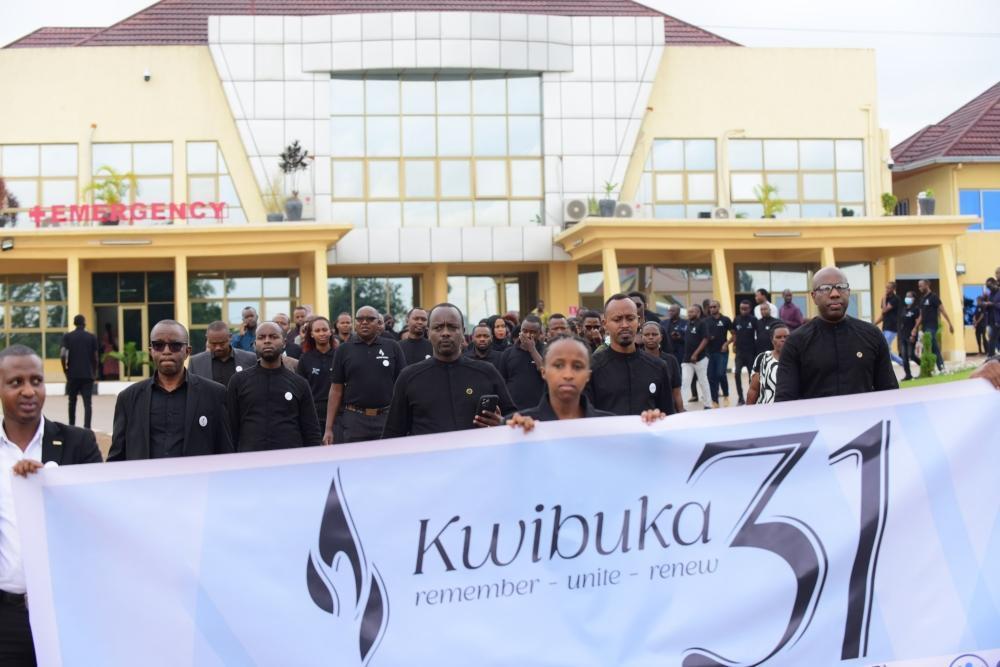Africa-Press – Rwanda. Veneranda Uwamariya, a member of the Rwandan Parliament, has appealed to foreign nations that host Rwandan medics accused of participating in the 1994 Genocide against the Tutsi to extradite them so that they can be tried by courts of law.
Uwamariya said this during a commemoration event for the Genocide against the Tutsi, held at the University Teaching Hospital of Butare (CHUB) in Huye District, on Friday, May 23.
She said some of the medical workers who took part in the killings worked in foreign countries, and added that their licences should be revoked.
“Justice must prevail for the families of the victims,” MP Uwamariya said.
CHUB became a place of horror during the genocide, as doctors who had pledged to save lives became perpetrators. An estimated 300 Tutsi were killed within the hospital grounds—including patients, hospital staff, and others who had sought refuge there.
“Those who harbour and employ Genocide perpetrators must understand that genocide is a crime without statute of limitations,” said the lawmaker. “We urge all nations to ensure that those responsible are returned to Rwanda and brought to justice.”
She called on Rwandans to reject genocide denial and those who spread deceptive narratives about what happened in Rwanda in 1994. “We must unite to stand for the truth,” she said.
Christine Nuwumukobwa, a survivor and former student at the National University of Rwanda, shared her harrowing account of her experience during the Genocide. After fleeing to CHUB in search of safety, she witnessed doctors handing over their Tutsi colleagues to soldiers.
“Every corridor was filled with armed soldiers,” said Nuwumukobwa. “The very doctors who were supposed to save lives were the ones identifying their Tutsi colleagues to be taken away and killed.”
Dr Christian Ngarambe, Director General of CHUB, noted that then-interim President Théodore Sindikubwabo, a paediatrician and former Health Minister, convened a meeting with Hutu doctors during the Genocide, urging them, as ‘people knowledgeable in how to kill efficiently,’ to murder Tutsi and teach others to do the same.
Dr Ngarambe also mentioned Godefroid Gatera, an orthopaedic specialist, who reportedly used formalin—a chemical normally used to preserve bodies, but extremely harmful to the eyes—by splashing it into forests to flush out Tutsi hiding there.
Despite this dark chapter, Dr Ngarambe stressed that today’s healthcare providers are committed to healing, not harm.
“They are dedicated to treating every Rwandan with compassion and equality,” he said.
The Genocide, which claimed over one million lives, decimated Rwanda’s health sector, with nearly 80 per cent of healthcare providers killed.
But the sector has since been rebuilt and continues to serve all citizens with renewed purpose and professionalism, Dr Ngarambe added.
For More News And Analysis About Rwanda Follow Africa-Press

